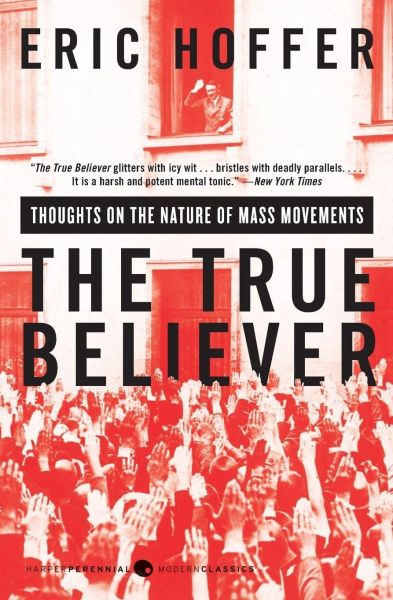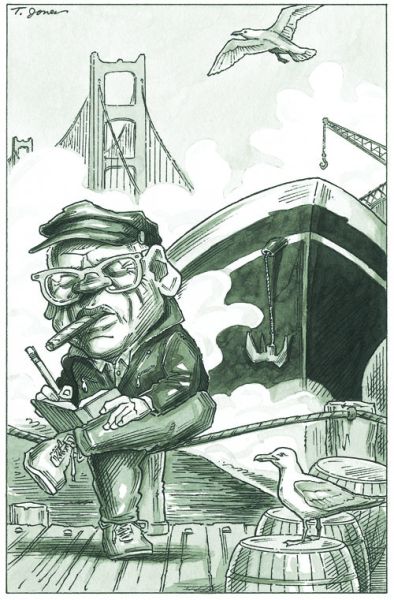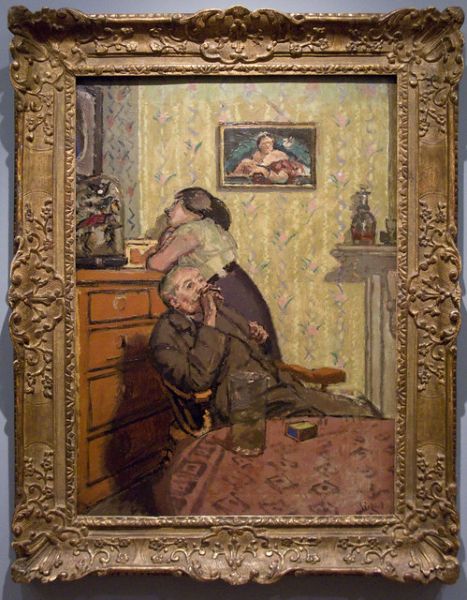Eric Hoffer on the American Political Crisis
The longshoreman philosopher Eric Hoffer published his landmark book True Believer in 1951. Hoffer described it as his Thoughts on the Nature of Mass Movements (in an under-title). For me, True Believer does more than that. He profiles the players in a political crisis, analyzes their intentions, and studies their motives. A reader has to understand his perspective on this subject—the atrocities of the Third Reich and the Soviet Union.
As an American in the 21st century—50-plus years after publication—I worry that the attitudes and intentions of the players in America's political crisis have not changed. The perrenial personality types recur in the mechanics of each crisis. Regarding the players, Hoffer comments on them in his Axiom 18:
The inert mass of a nation is in its middle section. The decent, average people who do the
nation's work . . are worked upon and shaped by minorities at both ends—the best and the
worst. . . .
The game of history is usually played by the best and the worst over the heads of the majority
in the middle.
Curious that Hoffer highlights the politics as a contest between the "best and the worst" and their character and motives, rather than as a contest between Republicans and Democrats; and he really talks more about the "worst", explaining how they got that way, and what exactly makes them do what they do. Hoffer could actually describe the "worst" better as "cursed". He explains this point in his Axiom 7:
A mass movement appeals not to those intent on bolstering and advancing a cherished "self",
but to those who crave to be rid of an unwanted self. . . .
People who see their lives as irremedially spoiled cannot find a worthwhile purpose in self-
advancement. . . .
Faith in a holy cause is . . . a sustitute for the lost faith in ourselves.
Hoffer explains why the cursed-worst feel "irremedially spoiled" in Axiom 26.
Freedom aggravates at least as much as it alleviates frustration. Freedom of choice places
the whole blame of failure on the shoulders of the individual. . . .
Unless a man has the talents to make something of himself, freedom is an irksome burden. . . .
We join a mass movement to escape individual responsibility, or in the words of one ardent
young Nazi, "to be free from freedom".
An important source of this disaffection, Hoffer writes, is boredom. He explains this point in his Axiom 41.
In their earliest stages, mass movements are more likely to find sympathizers among the bored
than among the exploited nad oppressed. . . .
When people are bored, it is primarily with their own selves that they are bored. . . . People
who are not conscious of their individual separateness . . . are not accessible to boredom.
The differentiated individual is free of boredom only when he is engaged either in creative
work or some absorbing occupation.
Hoffer continues his discussion about the risks of "boredom" and an "escape from a blemished life" into Axiom 42.
Self-surrender . . . the source of a mass movement's unity and vigor, is a sacriifice, an act of
atonement. . . .
Here, as elsewhere, the technique of a mass movement aims to infect people with a malady,
and then offers the movement as a cure. . . .
To confess and repent is to slough off one's individual distinctness and separatenesss. . . .
Crime is, to some extent, a substitute for a mass movement. Where public opinion and law
enforcement are not too stringent . . . the underground pressure of malcontents and misfits
often leaks out in crime. It has been observed that, in the exaltation of mass movements . . .
common crime declines.
I remember the sadness I felt when I read Henry David Thoreau's quote the first time, that "Most people live lives of quiet desperation." For all his reading, Hoffer probably did not know about Thoreau, but Thoreau could just as easily have substituted "boredom" for "desperation", and he would communicate the same feeling and evoke the same sadness.



